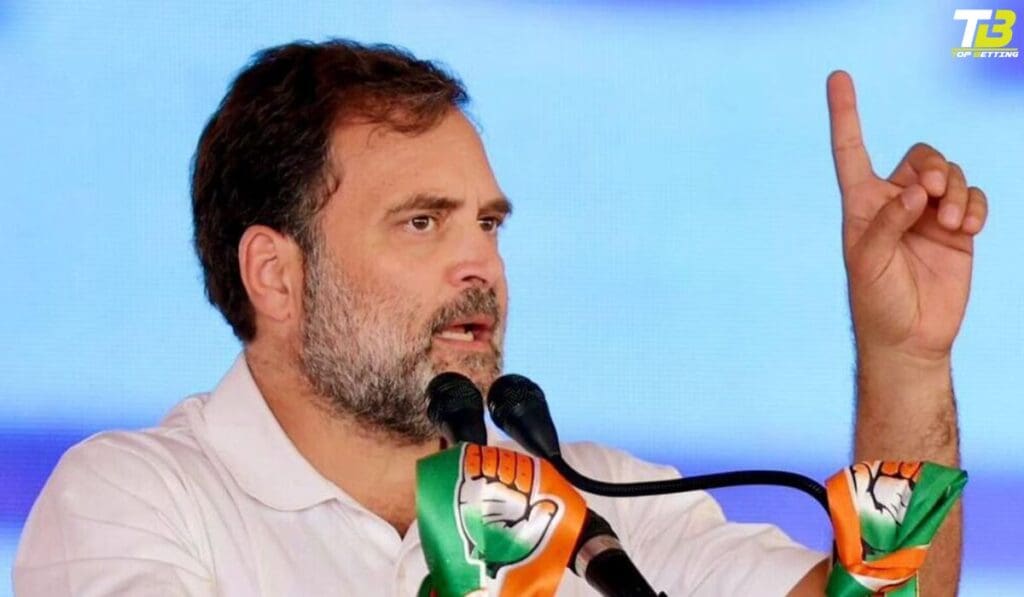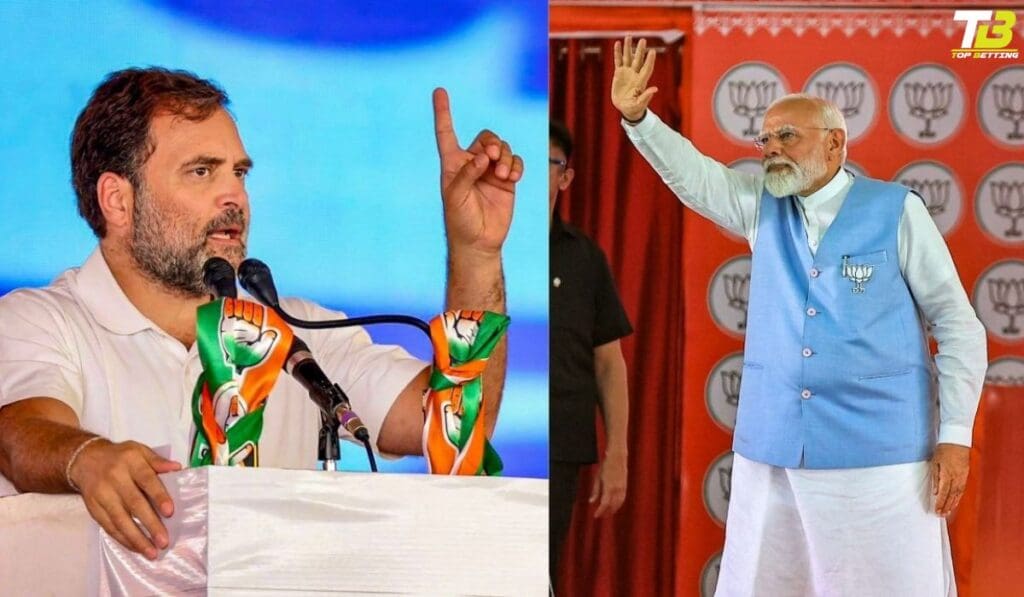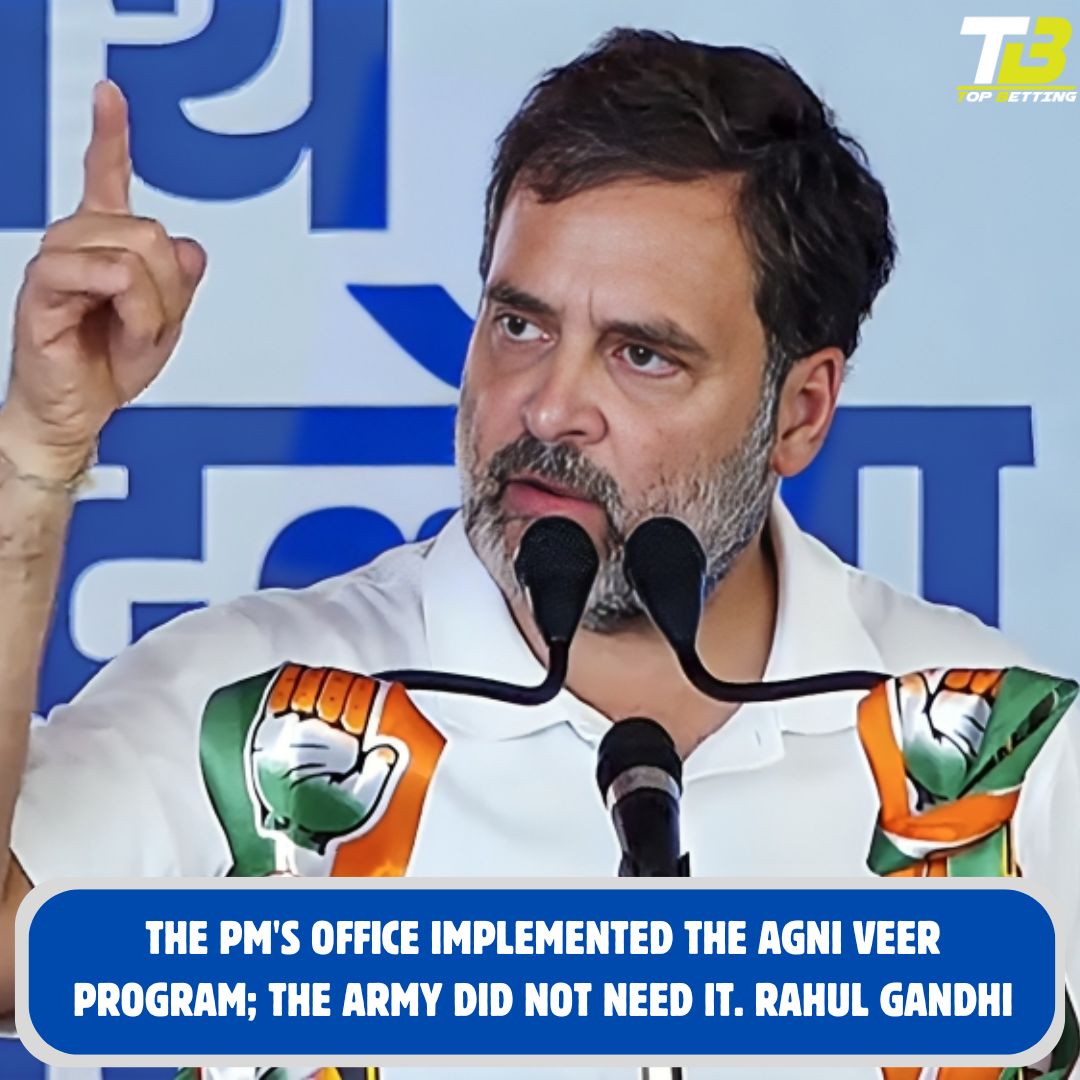
The Agni Veer Program is Not needed in Army | Rahul Gandhi
Says that unemployment and inflation are the main problems, based on his interactions during his pad yatras.
Rahul Gandhi, the leader of the Congress, reaffirmed on Thursday the party’s position that this election is about preserving democracy and the Constitution and that, should his party win, it will abandon the Agnipath plan.
Rahul stated, “Every state used to send its youth to the Army, including Rajasthan, Uttar Pradesh, Tamil Nadu, and Bikaner, Rajasthan. The Indian government used to promise to look after you if something happened, according to the Army. It used to be the Indian government’s pledge to the jawans that they would receive a pension, martyr status, and, in the event of a martyrdom, compensation, pension, and canteen.
Unfortunately, Narendra Modi has reneged on this pledge by introducing Agni veer. The Army didn’t need this Agni veer plan either. The Army made no mention of wanting this Agni veer plan. The PM’s office was in charge of carrying out this plan. He declared, “We will cancel the Agni veer scheme as soon as our government arrives” and promised to reinstate the previous “guarantee” that was offered to jawans.
Criticizing the Modi administration, he claimed that the PM had waived Rs 16 lakh crore for the backward castes, scheduled castes, scheduled tribes, and minorities, and that none of the owners or senior management of the 200 largest Indian enterprises represented any of these groups. He explained that, to put things in perspective, the money that the prime minister of the 25–30 wealthiest Indians waived was the same as 24 years’ worth of MGNREGA spending. He declared, “The wealthiest 22 Indians own as much as 70 crore people.”
“The money they (the BJP government) gave to arabpatis (billionaires), we will give that money to the poor, the backward, Dalits and tribals,” he declared when the Congress came to power. According to him, the media would claim that “you are spoiling the habits of the farmers” if money is provided to farmers and laborers, but when debts of arabpatis are forgiven, the same thing is not uttered.
He reaffirmed the conduct of a caste census and the allocation of Rs 1 lakh to the bank account of one woman in every impoverished family, “until they come out of the poverty line,” in addition to outlining his party’s five main pledges.
Rahul claimed that whenever he would inquire about the most pressing problem during his padyatras, he would always receive the response, “Unemployment is the biggest issue.” According to him, inflation is the second problem that most people are concerned about.
The Need for Defense Forces
Safeguarding Sovereignty
The primary purpose of defense forces is to protect a nation’s sovereignty. They are responsible for defending the country’s borders, deterring potential adversaries, and responding to external threats. Defense forces serve as a shield, ensuring the safety and security of the nation and its people.
Tailoring Defense to National Priorities
Each nation has its own unique defense needs, depending on various factors such as geographical location, historical context, and potential threats. It is crucial for countries to tailor their defense forces to address these specific priorities. For example, smaller nations like Maldives or Sri Lanka may not require an aircraft carrier due to their limited resources, while larger nations like the United States maintain a significant number of carriers to project power globally.
Augmenting Combat Strength: A Strategic Paradox
The Force Multiplier Effect
Nations have found innovative ways to augment their combat strength without significantly increasing the size of their standing armies. One such approach is the utilization of reserve forces or compulsory military service. By mobilizing reservists during times of need, countries can rapidly increase their fighting capacity. For instance, Israel has successfully mobilized a large number of reservists, effectively tripling the size of its forces during times of conflict.
The Hybrid Model: Agniveer Scheme in India
India, being a diverse and populous nation, has adopted a unique approach to enhance its combat strength. The Agniveer scheme aims to keep the armed forces young and maintain a reserve of trained personnel. Under this scheme, individuals with a 10+2 educational background undergo six months of training and serve for three and a half years. This cost-effective strategy allows for the cultivation of a skilled and disciplined workforce, providing a force multiplier effect.
Evaluating the Agniveer Scheme in India
Rahul Gandhi’s Perspective
Congress leader Rahul Gandhi has expressed his reservations about the Agniveer scheme, stating that the Indian Army was not in favor of its implementation. According to Gandhi, the scheme was a brainchild of Prime Minister Narendra Modi, with all decisions pertaining to it being made in the Prime Minister’s Office. He argues that the training duration of four months for Agniveers pales in comparison to the five years of training received by Chinese soldiers, raising concerns about the scheme’s effectiveness and the lack of benefits for Agniveers and their families.
Congress Manifesto: Abolishing the Agnipath Scheme
In its manifesto for the Lok Sabha polls, the Congress party has promised to abolish the Agnipath Scheme and return to the traditional recruitment processes followed by the Indian Army, Navy, and Air Force. The manifesto emphasizes the importance of providing economic and social security to the soldiers who dedicate their lives to the service of the nation. The proposed changes aim to ensure that the welfare and well-being of soldiers remain a top priority.
The Significance of Economic and Social Security
Guaranteeing Economic Stability
One of the key concerns raised by critics of the Agniveer scheme is the lack of economic security for Agniveers and their families. The Congress manifesto addresses this issue by promising to reinstate the traditional recruitment processes, which provide soldiers with the assurance of a pension and other financial benefits. By ensuring economic stability, the government can incentivize individuals to join the armed forces and serve the nation without concerns about their future financial security.
Social Support for Soldiers
In addition to economic security, social support is crucial for soldiers and their families. The traditional recruitment processes followed by the Indian armed forces have provisions for providing social benefits such as access to canteen facilities, healthcare, and other welfare measures. The Congress party emphasizes the need to reinstate these benefits to create a supportive environment for the soldiers serving the nation.

The Way Forward: Balancing Needs and Resources
A Tailored Approach
Every nation needs to strike a balance between its defense needs and available resources. While some countries may opt for compulsory military service, like Singapore, others may adopt different strategies based on their unique circumstances. It is essential to evaluate the effectiveness and feasibility of different approaches, taking into account factors such as national security, economic capabilities, and societal expectations.
The Importance of Continual Evaluation
The defense landscape is constantly evolving, and nations must adapt to new challenges and technologies. Regular evaluations of defense policies and schemes, such as the Agniveer scheme in India, are necessary to ensure their efficacy and relevance. By incorporating feedback from experts, policymakers, and the armed forces, governments can make informed decisions to strengthen their defense forces and enhance national security.

Conclusion
Defense forces play a crucial role in protecting a nation’s sovereignty and ensuring the safety and security of its citizens. Each country must tailor its defense forces to address its unique challenges and priorities. The Agniveer scheme in India, while facing criticism, seeks to augment combat strength by maintaining a reserve force of trained individuals. The Congress party’s promise to abolish the scheme and reinstate traditional recruitment processes emphasizes the need for economic and social security for soldiers. Balancing defense needs with available resources is crucial, and continual evaluation of defense policies is essential to adapt to changing circumstances. Ultimately, defense forces remain the shield that safeguards a nation’s freedom and security.










